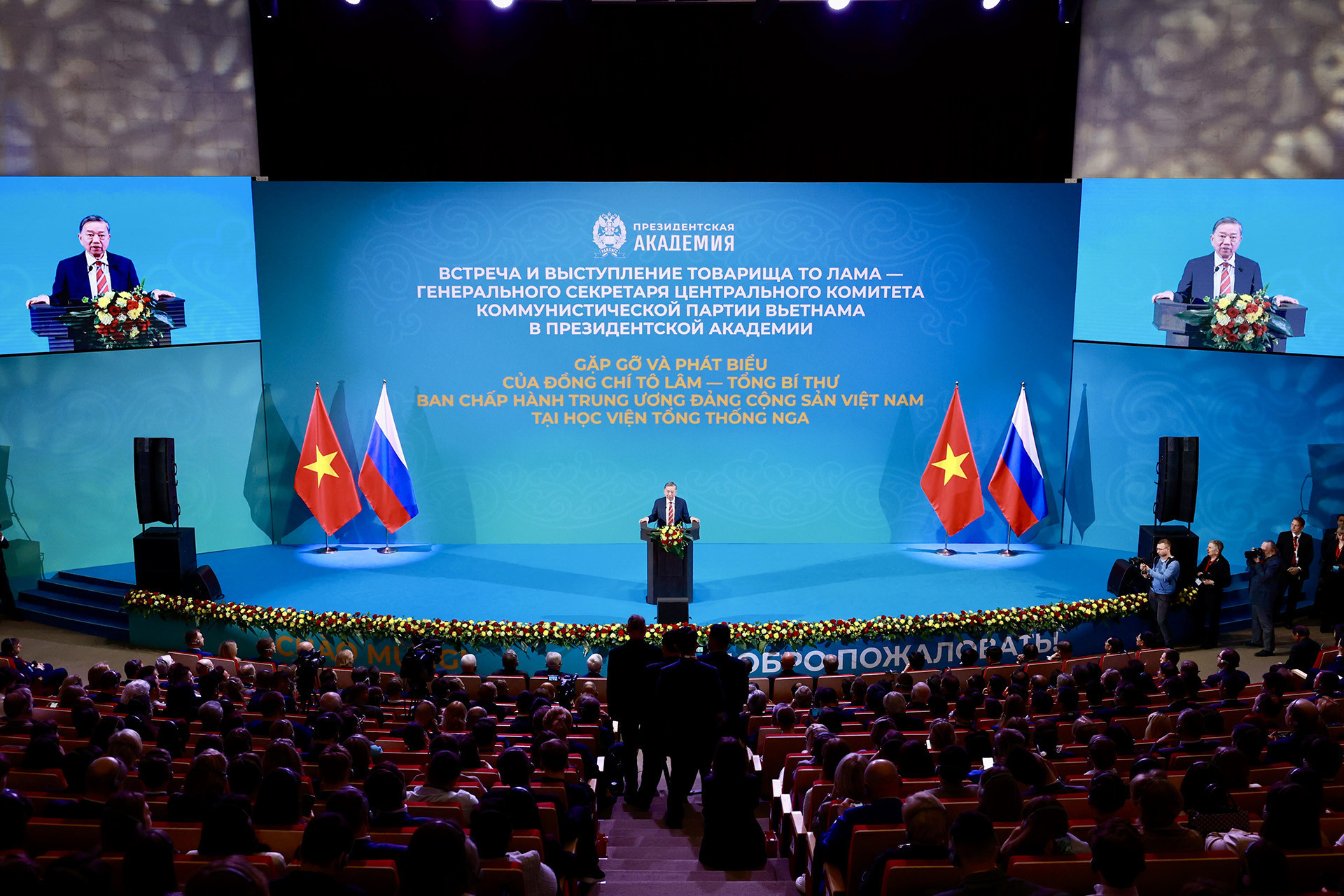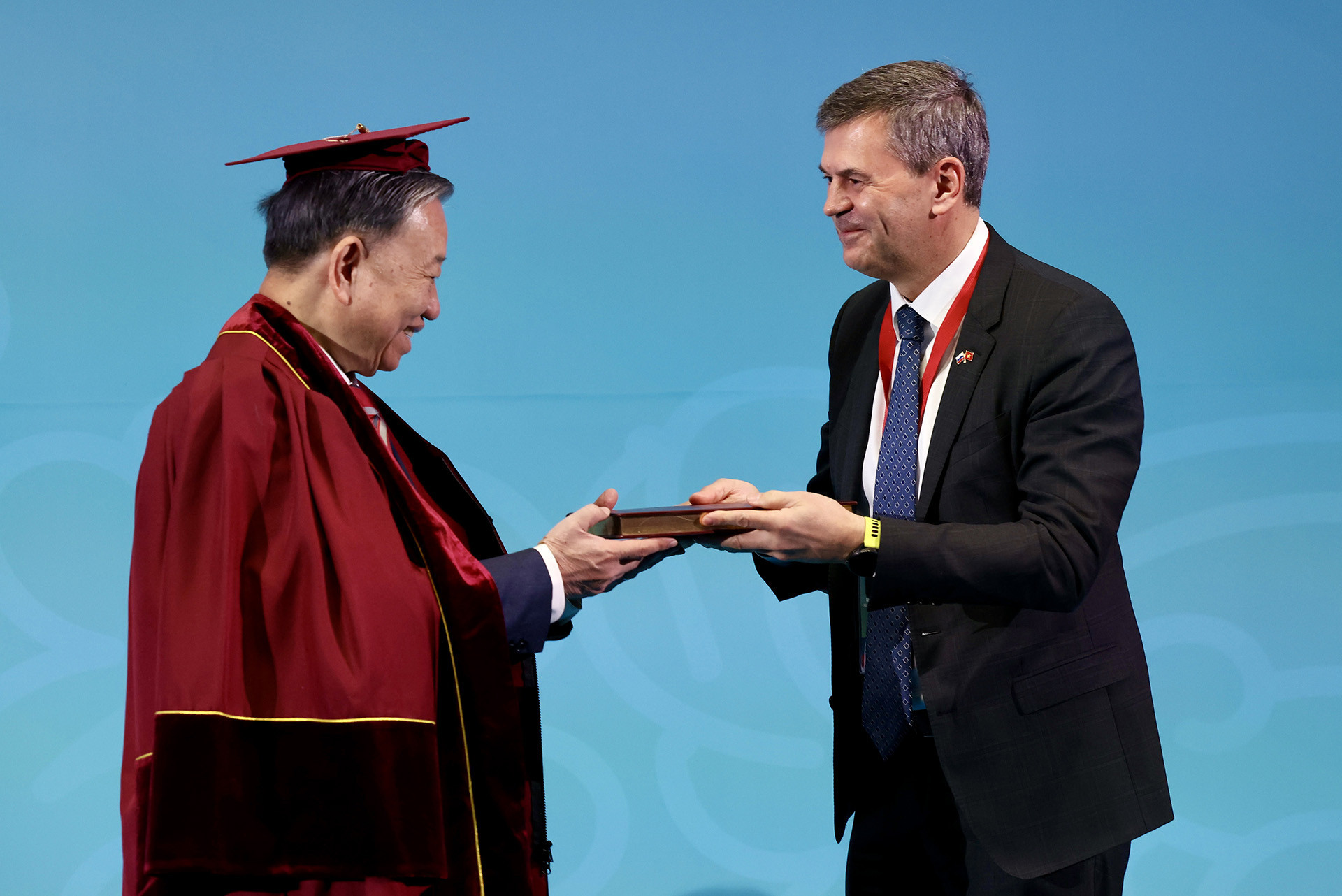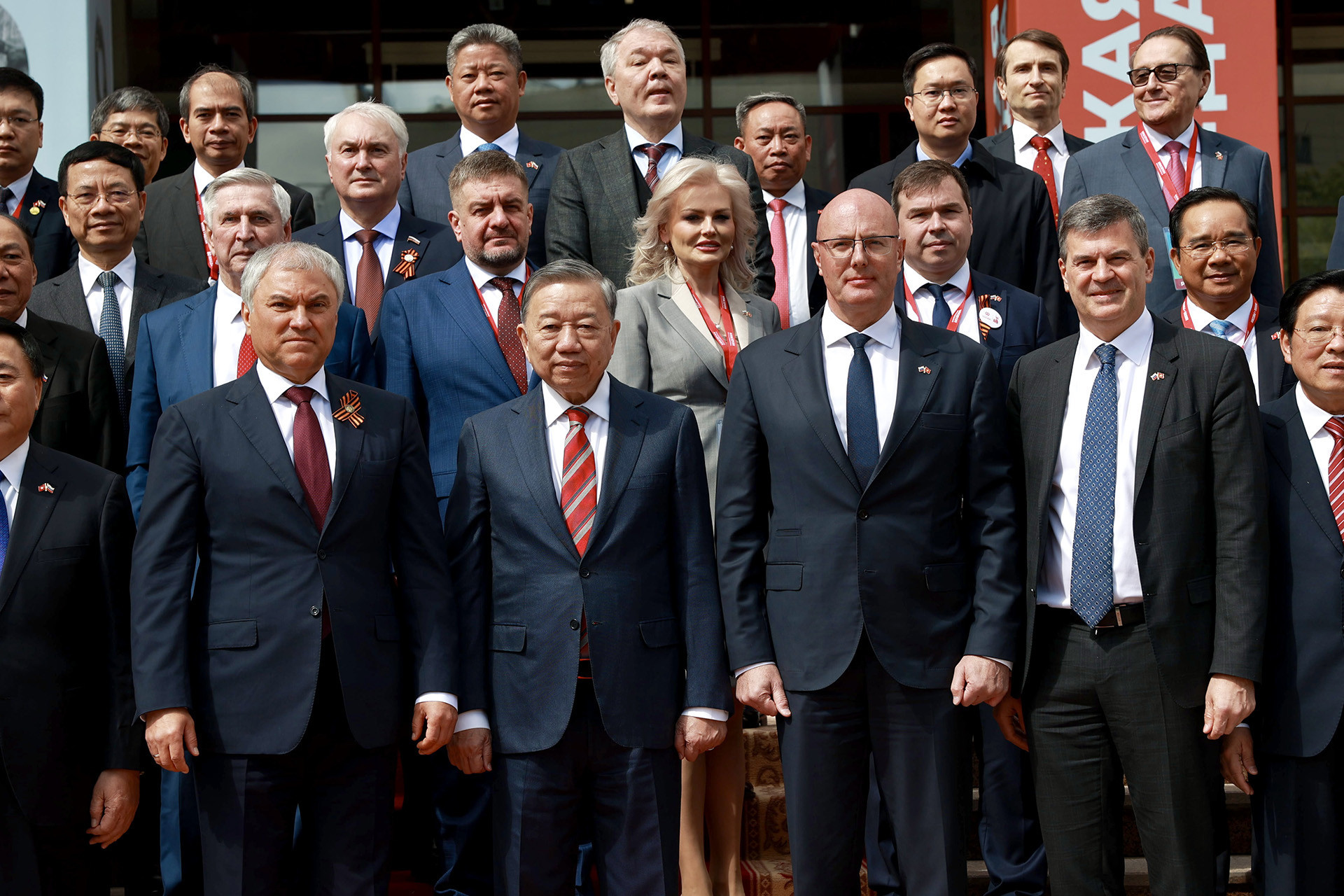On May 10 (Hanoi time), General Secretary To Lam delivered a keynote policy address at RANEPA in Moscow, the capital of the Russian Federation.

Rector Alexey Gennadievich Komissarov introduced RANEPA as a top-tier institution offering multi-level education in economics, social sciences, and humanities, while also training senior officials and leaders for Russia’s public administration system. It is the only educational institution directly under the management of the President of the Russian Federation.
RANEPA traces its roots to the Institute of Social Sciences under the Central Committee of the Communist Party of the Soviet Union, which trained nearly 1,000 senior Vietnamese officials, including the late General Secretary Nguyen Phu Trong.
In his speech, General Secretary To Lam shared emotionally that the over-100-year history of relations between Vietnam and Russia has been marked by profound solidarity. As early as the 1920s, when Vietnam’s revolutionary movement was still searching for direction, the Soviet Union - born from the Great October Revolution - became a guiding light for Vietnam’s path to national liberation.
President Ho Chi Minh, founder of the Vietnamese revolution, came to Russia to study at the Communist International, where he engaged with Marxist-Leninist ideology - laying the ideological groundwork for the founding of the Communist Party of Vietnam in 1930.
The General Secretary emphasized that the faithful, heartfelt support of the former Soviet Union and today’s Russian Federation is a precious historical legacy, and a foundation for continued bilateral cooperation.
He noted that despite geographic distance, the two countries share deep historical, spiritual, and ideological affinities. The Vietnamese and Russian peoples resonate in spirit, have shared many struggles, and continue to stand side by side in development - bound by a rare bond of brotherhood and camaraderie.
To Lam stressed that few countries have maintained such a deep, unwavering connection in the hearts of generations of Vietnamese people as the former Soviet Union and modern Russia.
Vietnamese and Russian leaders, he said, have exchanged strategic views aimed at elevating bilateral cooperation, particularly in trade, investment, and finance. They have prioritized creating favorable conditions to expand economic ties in line with international law and the legal frameworks of both countries.

General Secretary To Lam highlighted defense and security as vital pillars of Vietnam-Russia relations - areas that must evolve to meet current challenges and contribute to peace and stability in the region and globally.
He identified science, technology, innovation, and digital transformation as key fields for collaboration - particularly in basic sciences, information technology, artificial intelligence (AI), automation, biomedical engineering, and renewable energy.
He underscored Vietnam’s strong interest in developing nuclear energy, and prioritized expanding cooperation in atomic power. This includes effective implementation of the nuclear science and technology research center project in Vietnam.
He also expressed hope that RANEPA will strengthen cooperation with Vietnamese research institutes and universities, particularly in public administration, international economics, and international relations.
To Lam called for stronger coordination in international and regional multilateral forums, advocating for multilateralism and a fair, sustainable multipolar world order. He emphasized Russia’s important role in this vision, based on the principles of the UN Charter and international law, and highlighted the need for joint global efforts to tackle non-traditional security challenges.

He affirmed that Russia’s glorious history and great achievements, along with the long-standing Vietnam-Russia partnership, underline the country’s special role for Vietnam - an enduring connection to which institutions like RANEPA have significantly contributed.
General Secretary To Lam expressed his hope that future generations from both nations will inherit and deepen this extraordinary, loyal friendship, continuing to nurture a strong and enduring partnership into the new era.
On this occasion, Rector Komissarov also presented To Lam with a copy of the doctoral dissertation of the late General Secretary Nguyen Phu Trong, defended in 1983, titled “The activities of the Communist Party of Vietnam to strengthen its ties with the masses in the current period (based on the experience of the Communist Party of the Soviet Union).”
Tran Thuong